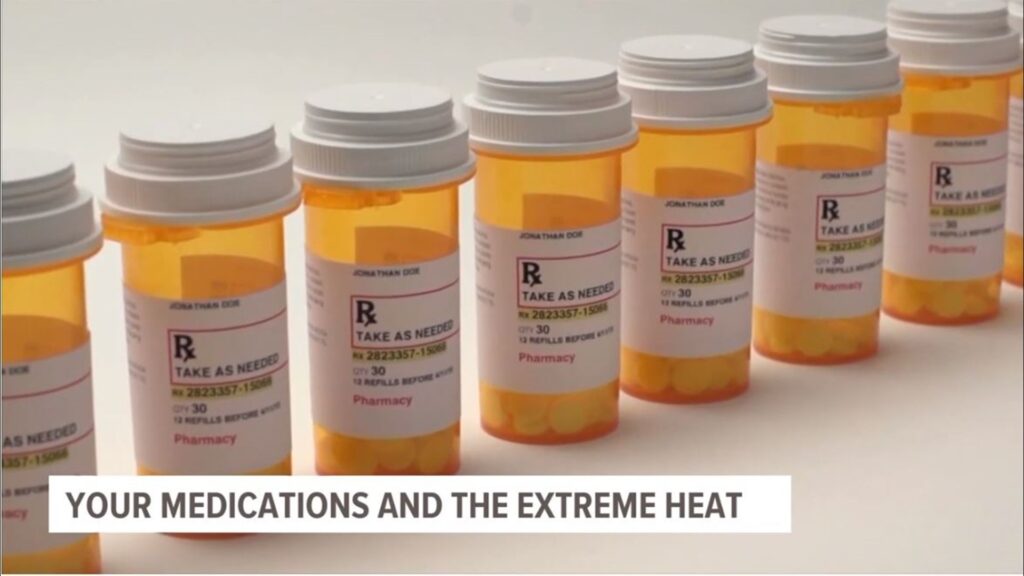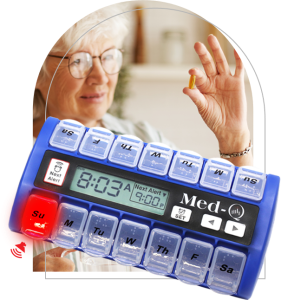HOW TO STORE SENIOR'S MEDICATION SAFELY DURING HOT WEATHER

Heat is not good for pills. The same applies with humidity and excessive cold. What can be effective? Incluuding but not limited to, Capsules, tablets, inhalers, liquids, injectables. There is many more. Every one knows that Medicines will comes in many different forms. But the thing theyl have in common, the need to stay out of heat weather and direct sun. Fact is, they do not do fare well in high, extreme temperatures.
Keep your meds out of excessive heat and cold. Both will have a big impact on how well medications work. Furthermore, this applies to both prescription and over-the-counter pills. Some will say that it is not be a big deal for a vitaminpill. This is very different form a blood pressure medication or asthma inhaler .
WHY SAFE MEDICINE STORAGE SO IMPORTANT
All medicine have a label with instructions on safe storage. A typical precriptions ought to be kept at 58 to 77 degrees °F . Also, keep it in a cool place that is also dry. The chemicals and components that make the pills work can change when exposed to high heat or very cold temperatures. For example, drugs that contain hormones (think birth control, chemotherapy drugs, anti-seizure medications, and antibiotics) will not be as effective if left out in temperatures outside their label ecommendations.
Do not keep your pill in the bathroon. First of all, moisture can make many pills to not acheive maximum bebefits. In fact, some will totally stop working as intended. For example, if blood glucose strips are exposed to humidity, they can ive ia wrong reading. That means the medicine cabinet in your bathroom should not be used to store medicine or hold your pill box.
Finally, “Medications do not tolerate sunlight and will lose potency if left on a windowsill in direct sun.
How cold temperatures affect medication
 It’s not just heat that can negatively impact prescription pills. In fact, medicine shouldn’t ever be frozen .
It’s not just heat that can negatively impact prescription pills. In fact, medicine shouldn’t ever be frozen .
A typicalexample is insulin. Insulin is a protein that can become unstable when frozen. Even if thawed out, you shouldn’t take the tainted insulin.
There’s no way to tell visually whether your previously frozen medication is still good, so it’s best to get it replaced.
Sponsored by Med-Q Pill Dispenser with Alarms
WHAT IS THE BEST PLACE TO STORE MEDICATION AT HOME?
Simply put, medicines that are stored properly will always last longer and be more effective. Hence, knowing where to keep your medicine in your home is no laughing matter. In fact, it is critical to health, safety. and general well being.
Extreme temperatures (both hot and cold) can physically change your medications and affect their potency (how well they work), which can be harmful to your health, says Mark Heelon, the pharmacist who serves as medication safety officer for Baystate Health.
So where is the best place to put your pill dispenser or pill box? Find out waht the temperature your exact medication or supplements ought to be stored. Most pill organizers can be left at room temperature. First of all, the optimum temp for most prescription meds is 59 to 77 degrees °F, i. Second of all, keep you medication dispenser or medication pill box in a cool. Finally, keep them in a non-humid, dry place.
Med-Q Medication Compliance System has tips for where supplements and prescription medications need to be stored:
- Keep the in some kind of pill organzer or pill box
- A dresser drawer
- A kitchen cabinet away from the stove
- A drawer that is not near the sink
- A counter not close to a hot appliances
- Keep out of direct sunlight
- A storage box in a closet
If the event that one is unsure, be sure to read the label. In addition, always ask your pharmacist for advice if uncertain. Furthermore, always keep the pills out of the reach of children.
For those who do not have air conditioning in their home, Med-Q recommends put the pills in the storing your medicine in the refrigerator (depending on the medicine) for safe keeping. Also, Precription doses that need to be refrigerated should be kept between 36 and 46 degrees Fahrenheit.
“As always, be sure to ask your pharmacist when picking up new medicines about the best way to store them, and also ask about other medications you may have at home that you are unsure about,” said Heelon.
HOW TO SAFELY CARRY MEDICINE WHILE TRAVELING
Keep medicine on your body at all times. If on the go, never leave pills in the car. It could get very hot or cold car,. Also, don’t eep them in your trunk. Ideally, all medicines should be kept in the glove compartment while driving if you are in the vehicle.
- Always ask the pharmacistabout about the best way to store any new medicines.
- Medications that require refrigerationneed to be kept in a small cooler with a cool-pack. NOT PACKED IN ICE.
- If traveling by plane, keep medications in your carry-on luggage .
Ship medicine overnight. If you order medication, always, choose overnight shipping and make sure someone will be around to pick them up. If you work, have the medication shipped to your office to avoid it sitting on your porch in a hot mail box.
IS MEDICINE OK IF IT WAS LEFT IN THE HEAT OR COLD?
Accidents happen. For example, you left your meds in a hot car. Another example, you accidentally left iin the sun on the counter.
Look for changes. Always examine the pills before ingesting them.
“If medication is stuck together, appears “runny,” is harder or softer than normal, shows changes in color, or has a different odor than usual when opening the bottle, it may be compromised and should not be taken.”
Just because a medication looks normal doesn’t mean it is not tainted. Fact, it could have been damaged by extreme temperatures – hot or cold. If you have worries and/or doubts talki with your pharmacist.

SAFETY BEYOND STORAGE
 There’s alot more to knowing the safest way to handel pills. This is Med-Q’s to picks for medicine safety:
There’s alot more to knowing the safest way to handel pills. This is Med-Q’s to picks for medicine safety:
- Alaways use only one pharmacy for all your medications.
- Be sure to have a list of your prescriptions as well as herbal supplements and over-the-counter drugs in your purse or wallet.
- When prescribed sometning new , know when and how to take it. Repeat the instructions you have been given back to the nurse, physician or pharmacist to make certain you understand.
- Talk to the health care proffesional before quiting any prescription. The same applies when, changing the dose.
Any questions, talk to your pharmacist
If you have questions about your medication or safe handling, talk to your pharmacist.
color, or has a different odor than usual when opening the bottle, it may be compromised and should not be taken.
But remember, just because a medication looks normal, it still could have been damaged by extreme temperatures – hot or cold. If you have concerns, consult your pharmacist.
SAFETY BEYOND STORAGE
There’s more to drug safety than proper handling. Here are a few additional tips for medicine safety:
- Use one pharmacy for all your medications.
- Always carry a list of your current medications, including herbal supplements and over-the-counter drugs.
- When you are prescribed a new drug, know when and how to take it. Repeat the instructions you have been given back to the nurse, physician or pharmacist who is helping you.
- Always speak with your doctor before stopping any medications, changing the amount you take, or adding herbal supplements.
If you have questions about your medication or safe handling, talk to your pharmacist.
